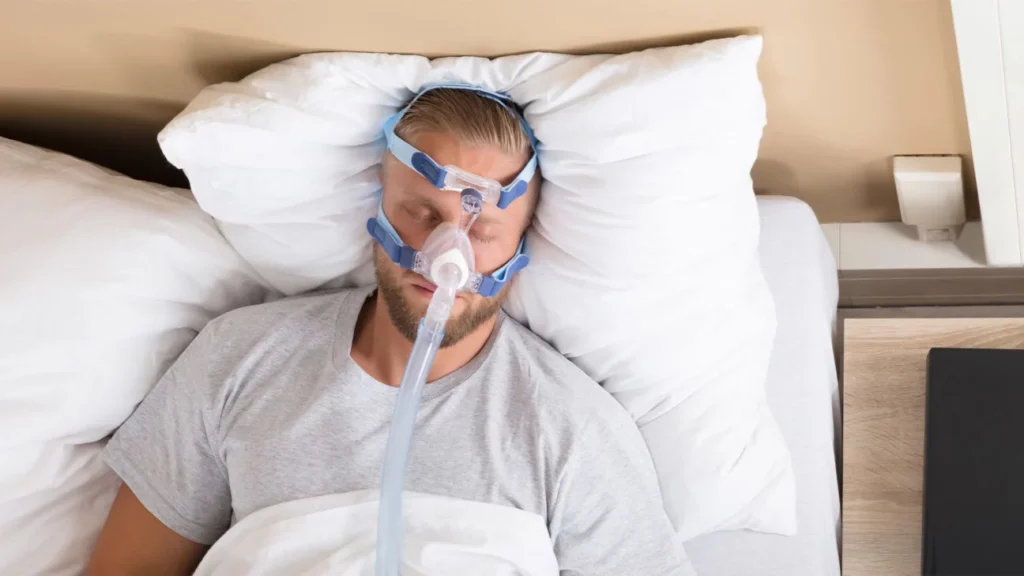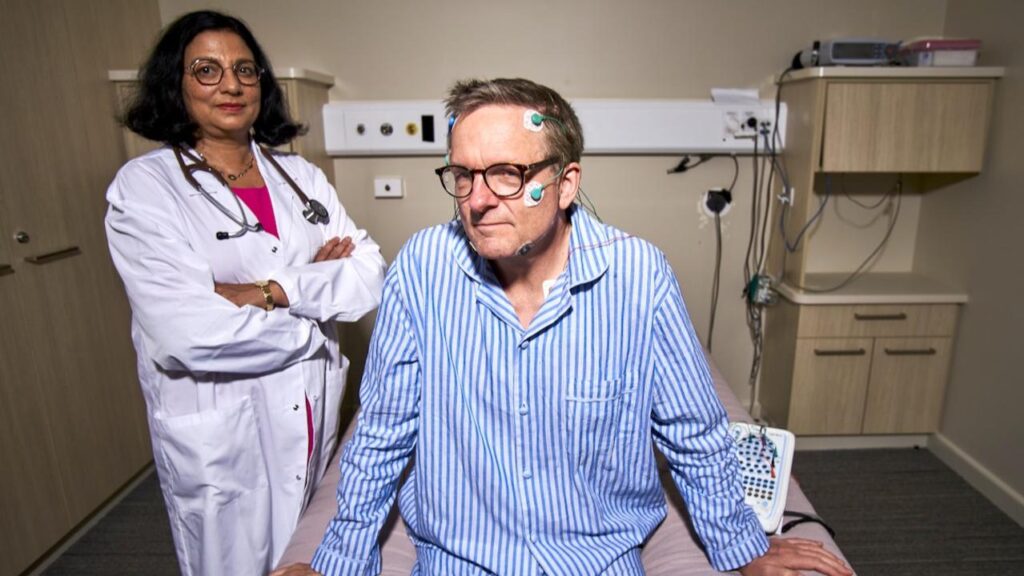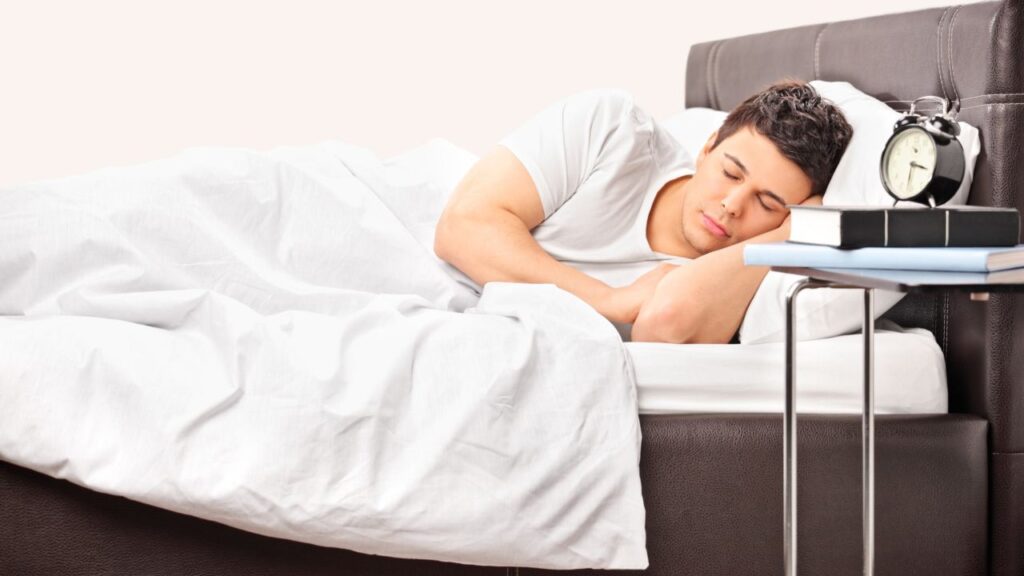In recent years, there has been a growing recognition of the importance of sleep in maintaining overall health and well-being. Adequate and restful sleep plays a crucial role in our physical, mental, and emotional functioning. However, for many Australians, achieving quality sleep can be a challenge due to the prevalence of sleep disorders. Understanding the underlying causes of sleep disturbances is paramount in addressing these issues effectively. This article aims to shed light on the benefits of a home sleep test in Australia, which can help individuals identify and manage sleep disorders from the comfort of their own homes.
Understanding Sleep Disorders
Sleep disorders encompass a wide range of conditions that can disrupt an individual’s sleep patterns. These disorders can manifest in various ways, such as difficulty falling asleep, frequent awakenings, or excessive daytime sleepiness. Some of the most common types of sleep disorders include:
Home sleep test Australia is a convenient and non-invasive way to assess sleep quality and screen for potential sleep disorders in the comfort of one’s own home. The process is designed to be user-friendly, allowing individuals to monitor their sleep patterns without the need for an overnight stay in a sleep laboratory.
Common Types of Sleep Disorders
1. Insomnia: A disorder characterized by difficulty falling and staying asleep, leading to inadequate rest and daytime fatigue.
2. Sleep Apnea: A condition that causes interrupted breathing during sleep, resulting in loud snoring, gasping, or choking sensations.
3. Restless Leg Syndrome (RLS): An irresistible urge to move one’s legs, often accompanied by unpleasant sensations, occurring predominantly at night.
4. Narcolepsy: A neurological disorder characterized by excessive daytime sleepiness, sudden and uncontrollable episodes of falling asleep, and muscle weakness.
5. Parasomnias: A group of disorders involving abnormal behaviors during sleep, such as sleepwalking, night terrors, or sleep-related eating disorders.

The Impact of Sleep Disorders on Health
Undiagnosed and untreated sleep disorders can have significant consequences on one’s overall health and quality of life. Individuals with sleep disorders often experience daytime fatigue, reduced cognitive function, and an increased risk of accidents. Furthermore, sleep disorders have been associated with various medical conditions, including hypertension, diabetes, obesity, and mental health disorders such as depression and anxiety.
It is important to note that the impact of sleep disorders extends beyond physical health. Sleep deprivation can also have a negative effect on mental well-being. Lack of quality sleep can lead to irritability, mood swings, and difficulty concentrating. Chronic sleep disorders may contribute to the development of mental health disorders, such as bipolar disorder or schizophrenia.
In addition to the direct effects on health, sleep disorders can also affect relationships and social interactions. The fatigue and irritability caused by sleep disorders can strain personal relationships, leading to conflicts and misunderstandings. Furthermore, individuals with sleep disorders may feel isolated or excluded from social activities due to their excessive daytime sleepiness or unpredictable sleep patterns.
Seeking proper diagnosis and treatment for sleep disorders is crucial in order to mitigate these negative impacts. Treatment options may include lifestyle changes, such as establishing a regular sleep schedule and practicing good sleep hygiene, as well as medical interventions, such as the use of continuous positive airway pressure (CPAP) machines for sleep apnea or medications for insomnia or narcolepsy.
By understanding the different types of sleep disorders and their potential impact on health and well-being, individuals can take proactive steps to prioritize and improve their sleep. It is important to consult with a healthcare professional if you suspect you may have a sleep disorder, as they can provide guidance and recommend appropriate interventions to help you achieve restful and rejuvenating sleep.
What is a Home Sleep Test?
A home sleep test is a convenient and cost-effective alternative to in-lab sleep studies. It involves using portable devices to monitor an individual’s sleep patterns, breathing, oxygen levels, heart rate, and other parameters that are crucial for diagnosing sleep disorders. Conducting a home sleep test allows individuals to undergo a sleep assessment in the comfort of their own homes, which can lead to a more accurate representation of their sleeping habits and patterns.
Home sleep tests have gained popularity in recent years due to their convenience and accessibility. They offer a less intimidating environment for individuals who may feel anxious or uncomfortable in a clinical setting. Additionally, the data collected from a home sleep test can provide valuable insights into a person’s sleep quality and help healthcare providers make informed decisions regarding treatment options. Find more about accessibility at https://case.edu/accessibility/what-accessibility
Components of a Home Sleep Test
A typical home sleep test kit consists of the following components:
- A portable monitor that records various physiological parameters during sleep.
- Elastic belts or straps to secure the monitor and sensors in place.
- A nasal cannula or airflow sensor to assess breathing patterns.
- Finger probes to measure oxygen levels and heart rate.
These components work together seamlessly to provide a comprehensive overview of an individual’s sleep patterns and potential issues that may be affecting their quality of sleep.
How Does a Home Sleep Test Work?
Prior to conducting a home sleep test, individuals typically receive detailed instructions on how to set up and use the equipment correctly. The portable monitoring device is worn overnight while the individual sleeps. The device collects data on sleep stages, breathing patterns, oxygen levels, and other essential parameters. Once the test is complete, individuals return the device to the testing facility for analysis and interpretation by sleep specialists.
Upon returning the device, the data collected is carefully reviewed by trained professionals who analyze the information to identify any potential sleep disorders or abnormalities. This detailed analysis helps in providing an accurate diagnosis and developing a personalized treatment plan tailored to the individual’s specific needs. The insights gained from a home sleep test can lead to improved sleep quality, overall health, and well-being.
Advantages of Home Sleep Tests
Home sleep tests offer various advantages over traditional in-lab sleep studies. These benefits include:
Convenience and Comfort
One of the most significant advantages of a home sleep test is the convenience it offers. Instead of spending the night in an unfamiliar sleep laboratory, individuals can undergo testing in the comfort of their own homes. This familiarity can help reduce anxiety and enhance the accuracy of the results.
Furthermore, being in a familiar environment can lead to more natural sleep patterns, providing healthcare providers with a better understanding of the individual’s typical sleep habits. This additional insight can be crucial in accurately diagnosing sleep disorders and developing effective treatment plans tailored to the patient’s needs.
Cost-effectiveness of Home Sleep Tests
Home sleep tests are often more cost-effective than in-lab sleep studies. The avoidance of facility fees, sleeping in a hospital bed, and round-the-clock monitoring significantly lowers the overall cost of testing.
In addition to direct cost savings, home sleep tests also eliminate the need for travel to a sleep center, saving patients time and money associated with transportation and potential time off work. This increased accessibility can encourage more individuals to undergo testing, leading to earlier detection and intervention for sleep-related issues.
Accuracy of Home Sleep Tests
Home sleep tests have been found to be comparable in accuracy to in-lab studies for diagnosing sleep apnea, which is the most common sleep disorder. They provide valuable information about the individual’s sleep architecture, respiratory events, oxygen levels, and other essential parameters necessary for diagnosis and treatment planning.
Moreover, the ability to conduct the test in a home setting allows for multiple nights of monitoring, which can capture a more comprehensive picture of the individual’s sleep patterns. This extended monitoring can aid in detecting variability in sleep quality and identifying trends that may not be apparent in a single night study, leading to more personalized and effective treatment strategies.

The Process of Home Sleep Testing in Australia
Obtaining a home sleep test in Australia is a straightforward process. Individuals typically first consult their primary care physician or a sleep specialist to discuss their sleep concerns. If warranted, the healthcare provider will prescribe a home sleep test and provide instructions on how to obtain the equipment. This may involve contacting a sleep clinic or a specialized testing facility.
Read more at: How to Schedule a Sleep Apnea Test in Melbourne
How to Get a Home Sleep Test in Australia
In Australia, home sleep tests require a referral from a healthcare provider. Once the referral is in place, individuals can arrange for the equipment to be delivered to their home. Detailed instructions on how to set up and use the equipment will accompany the delivery. After completing the test, individuals return the equipment to the testing facility for analysis and interpretation by sleep specialists.
It’s important for individuals undergoing a home sleep test to follow the instructions provided carefully to ensure accurate results. The data collected during the test is crucial for healthcare providers to make informed decisions about diagnosis and treatment options, if necessary.
Interpreting Your Home Sleep Test Results
Upon completion of the home sleep test, the collected data is analyzed by sleep specialists. They interpret the results and provide a comprehensive report detailing the individual’s sleep patterns, any significant events that occurred during the test, and recommendations for treatment if necessary. These results are then discussed with the individual, allowing for a collaborative approach to addressing any identified sleep disorders.
Understanding the implications of the home sleep test results is key to improving sleep quality and overall health. By working closely with healthcare providers, individuals can explore various treatment options and lifestyle changes to enhance their sleep hygiene and well-being.
The Role of Home Sleep Tests in Sleep Disorder Treatment
Home sleep tests play a vital role in the accurate diagnosis and treatment of sleep disorders. With their comprehensive monitoring capabilities, these tests provide valuable insights into an individual’s sleep patterns, breathing, and other physiological parameters. This information aids healthcare professionals in developing personalized treatment plans tailored to the specific needs of the individual. Click here to read more about physiological parameters.
How Home Sleep Tests Aid in Treatment Planning
By identifying and diagnosing sleep disorders accurately, home sleep tests enable healthcare providers to develop targeted treatment plans. For example, individuals diagnosed with sleep apnea may be prescribed continuous positive airway pressure (CPAP) therapy, which involves wearing a mask that delivers a gentle flow of air to keep the airways open during sleep. Home sleep tests help determine the efficacy of these treatments, allowing for adjustments and refinements as needed.
Ongoing Monitoring with Home Sleep Tests
Home sleep tests also offer the advantage of ongoing monitoring. Individuals can periodically retest themselves to assess the effectiveness of their treatment plans and make any necessary adjustments. This ongoing feedback loop provides valuable insights into an individual’s progress and helps optimize treatment outcomes.
In conclusion, home sleep tests offer numerous benefits in identifying and managing sleep disorders in Australia. These tests provide convenience, cost-effectiveness, and accuracy in diagnosing sleep disturbances. By facilitating personalized treatment plans and ongoing monitoring, home sleep tests play a crucial role in improving sleep quality and overall health. If you suspect a sleep disorder, consult with your healthcare provider to explore the benefits of a home sleep test and take a step towards better sleep and well-being.

